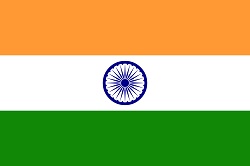Coming just a few days after the U.S. Pharmaceutical Research and Manufacturers of America (PhRMA) called laws in India governing intellectual property "weak," a report out from the subcontinent says the Indian Pharmaceutical Alliance (IPA) is making moves to assuage concerns from the U.S. Trade Representative over its IP laws.
The Indian group hopes to keep the USTR from downgrading the country's status to "priority foreign country" from its current "watch list" status so it can continue to enjoy certain trade preferences, according to a report from India's Business Today.
 The IPA, which is said to represent about 20 major Indian manufacturers that account for 60% of the country's pharmaceutical exports, told the USTR that collaboration between Indian and U.S companies is on the rise, that India is removing "procedural hurdles" in the industry and that it is "sharing data" with U.S. reps to bridge "the gulf" between the two countries when it comes to IP protection for drugs.
The IPA, which is said to represent about 20 major Indian manufacturers that account for 60% of the country's pharmaceutical exports, told the USTR that collaboration between Indian and U.S companies is on the rise, that India is removing "procedural hurdles" in the industry and that it is "sharing data" with U.S. reps to bridge "the gulf" between the two countries when it comes to IP protection for drugs.
India said it recognizes that U.S. drugmakers are concerned over the country's compulsory license laws, which allow it to approve generics for drugs it deems necessary for the public good and acknowledged that American companies are concerned over the country's data exclusivity laws.
The group, according to the report, "urged the USTR to take note of some of the new developments, especially those relating to increased collaboration between U.S. and Indian pharma companies that augur well for the American pharmaceutical industry to accelerate its growth in India and the developing world," the report said.
The IPA also said it has been creating jobs in the U.S. by investing in manufacturing and research facilities and pointed to companies like Sun Pharmaceutical that has nine manufacturing facilities in New Jersey, Massachusetts, Pennsylvania, Tennessee, Illinois and Michigan, and a research center in New York.
The report also said India plans to clear a backlog of patent applications that has been a concern to U.S. companies and said the country would hire 500 patent and design examiners to cut the time it took to process a patent application to one year from the current three to five years it takes.
- here's the report from Business Today